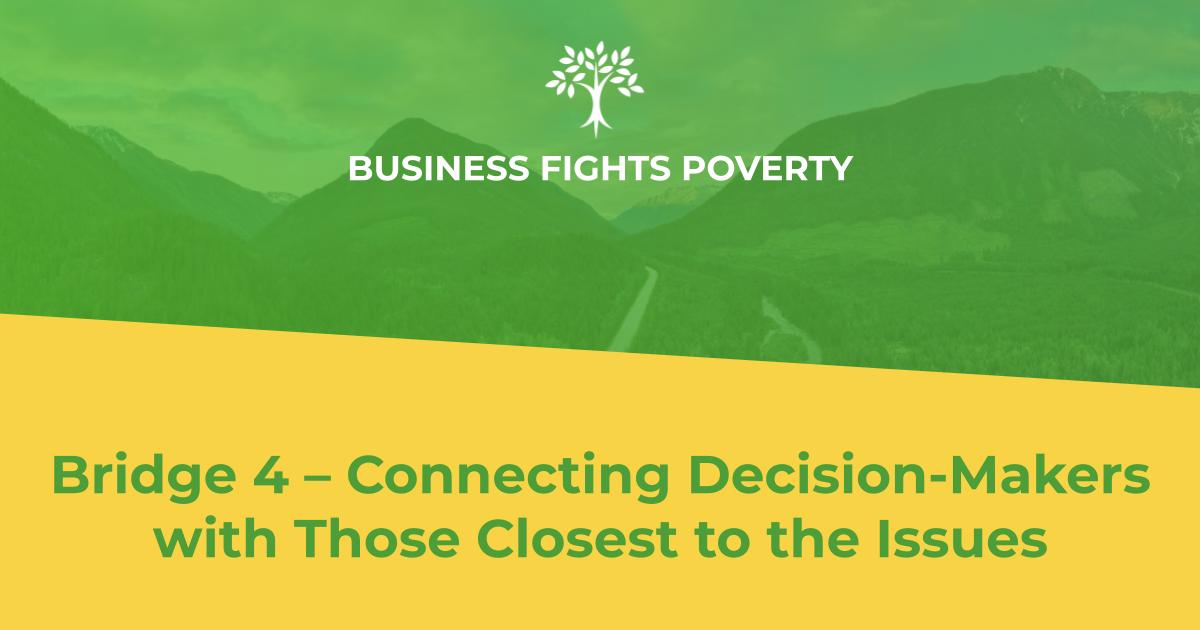Unlocking the “Missing Middle”: A New Agenda to De-risk Youth Entrepreneurship and Drive Economic Growth
This blogpost was originally published at: https://businessfightspoverty.org/unlocking-the-missing-middle-a-new-agenda-to-de-risk-youth-entrepreneurship-and-drive-economic-growth/
Youth Business International (YBI), the global leader in youth entrepreneurship, is calling for urgent action to support high-growth potential youth-led businesses trapped in the “missing middle.” YBI’s new policy paper sets out strategies to de-risk youth entrepreneurship and unlock sustainable economic growth, job creation, and innovation — particularly among underrepresented youth, women, and businesses outside traditional tech hubs.
Youth Entrepreneurship: A Missed Opportunity for Sustainable Economic Growth
Across the world, young entrepreneurs are building businesses with the potential to transform economies — creating jobs, driving innovation, and strengthening resilience. Yet far too many are stuck in the “missing middle”: too big for microfinance, too small or risky for mainstream investors. The result? Their potential remains untapped.
At Youth Business International (YBI), we believe this is not just a missed opportunity —it’s an economic liability. Our new policy paper, De-risking Youth Entrepreneurship and Unlocking the Missing Middle, developed in collaboration with our member Habitat in Türkiye, offers a clear call to action: we must reimagine how we support youth-led businesses with high growth potential.
Why the “Missing Middle” Matters
Globally, the SME financing gap is vast. In sub-Saharan Africa alone, that gap is estimated at $331 billion. In the UK, it’s £22 billion, according to a Bank of England report. Youth-led businesses — particularly those founded by women, rural youth, or from underrepresented groups — are disproportionately affected.
Outdated perceptions of what constitutes a “high-growth” business often lead investors to overlook dynamic entrepreneurs outside of major urban centres or the tech sector. But high growth happens in creative industries, green businesses, services, and manufacturing, often in less visible places. It’s time to shift the narrative.
A Blueprint for Action
YBI’s new policy paper sets out practical, evidence-based strategies for policymakers, financial institutions, and enterprise support organisations (ESOs) to enable youth-led businesses to grow and thrive. These include:
1. Co-designed Financial Products
Young entrepreneurs need finance that fits their realities. That means developing tailored products — such as uncollateralised loans, milestone-based financing, or community-based guarantees — that remove traditional barriers like collateral requirements.
2. Regulatory Reform
Governments must simplify processes, eliminate age-based restrictions, and adopt youth-friendly procurement policies. Enabling young entrepreneurs to access public contracts and register businesses easily is vital.
3. Financial Literacy and Investment Readiness
Training and mentorship can bridge confidence and skills gaps, helping young founders engage meaningfully with financial systems and investors.
4. High-Growth Bootcamps and Peer Learning
Spaces for strategic learning and regional collaboration — both in-person and virtual —help build networks and scale ambition.
5. Structured Mentoring
YBI has seen first-hand how well-structured mentoring boosts emotional resilience, improves decision-making, and supports strategic risk-taking.
6. Recognition of Diverse Growth Pathways
We must broaden our understanding of growth. Youth-led businesses in non-tech sectors often contribute significantly to community resilience and employment. Supporting them is critical to achieving the Sustainable Development Goals (SDGs).
The Time to Act is Now
The world is facing converging crises — from climate change to conflict — that are deepening youth unemployment and economic inequality. Supporting youth entrepreneurship is no longer a niche issue. It’s an economic necessity.
“We must redefine what success looks like and whom we invest in,” says Anita Tiessen, CEO of YBI. “The bias towards supporting tech start-ups in major cities misses the broader potential for sustainable development. High growth happens in rural areas, in traditional sectors, and among women and underrepresented youth. This is where transformative impact lies.”
Unlocking the missing middle will require purposeful collaboration across sectors. Financial institutions, governments, and enterprise support organisations must come together to co-create new systems that work for young entrepreneurs, not against them.
Call to Action
If you’re a policymaker, investor, or ESO, ask yourself:
- Are we investing in youth-led businesses outside the mainstream?
- Are our financial tools helping them scale — or holding them back?
- Are we building ecosystems where diverse young entrepreneurs can thrive?
The solutions exist. Now we need the collective will to act.
Download YBI’s full policy paper
Learn more about YBI’s global work
More Resources on Youth Entrepreneurship



